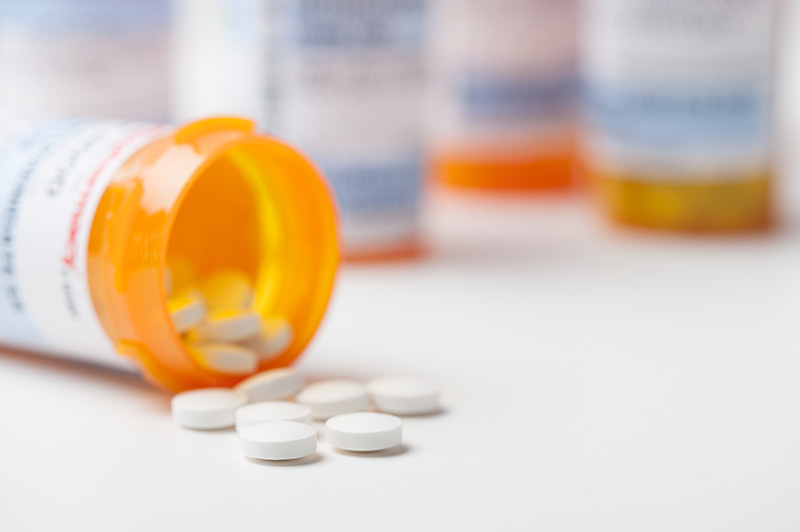

Pets can get into things that are unhealthy or even toxic. Eating that pan of chocolate brownies cooling on your stovetop, helping themselves to the garbage, or finding old mouse bait in the garage are easy ways to earn a trip to the animal emergency room.
Sometimes, though, pets are unintentionally harmed by items given to them by unsuspecting caretakers who practice good, proactive care. Pets in Stitches wants to help prevent these types of heartbreaking horrors by educating our clients about medicine cabinet dangers for pets. A little knowledge goes a long way.
All Dangers are Not Created Equal
One of the reasons that self-medicating your pet can be so risky is that there are many factors to consider when tossing your pet a pill. As well-intentioned as trying to help your pet with a bout of diarrhea or a hurt paw may be, administering medications without veterinary supervision can be a dangerous game.
Some factors that veterinarians take into account when choosing a medication for a particular pet include:
Species variations – Not all animals are able to process drugs in the same way. Some substances that are perfectly harmless in people can be toxic to pets. For instance, ibuprofen for dogs can lead to serious stomach and kidney issues. Cats are unable to break down the acetaminophen in Tylenol to clear it from their body due to a difference in their liver metabolism, making even small doses deadly. Other medications may be safe to utilize, but dosing might be significantly different between species.
Health status – Other health conditions can make certain pets more susceptible to toxicities or intolerances. These factors must be taken into account when medicating a pet.
Medication interactions – Not all drugs play nicely with one another. A single dose of aspirin, while not ideal for a dog, would be unlikely to cause major harm. If that pet is already taking prednisone for a skin infection, though, a serious stomach ulcer could occur.
Inactive ingredients – Sometimes it is not the active ingredient that we need to be worried about. Harmless substances for people such as the artificial sweetener Xylitol found in some peanut butters can result in serious harm to pets.
When in doubt, it is best to double check with your veterinarian before dosing your dog or cat with anything from your medicine cabinet. Not all pet toxicities are obvious to the average owner.
Common Medicine Cabinet Dangers for Pets
It is good practice to have some concept of which common medicine cabinet dangers for pets are absolute no-nos. Human medications that you absolutely want to keep away from your four-legged family include:
- NSAIDs (Motrin, Advil, Aleve, Naproxen)
- Acetaminophen (Tylenol)
- Antidepressants (Cymbalta, Prozac, Lexapro)
- ADD/ADHD medications (Adderall, Ritalin, Concerta)
- Sleep aids (Ambien, Lunesta)
- Blood pressure medications (Altace, Zestril, Tenormin, Toprol, Coreg)
Never give your pet a human medication without calling us or your regular veterinarian first. Likewise, be sure to keep your medications secure in a chew-proof container (plastic baggies don’t work well). Consider keeping your pet’s medications in a separate location from your own to further prevent mistakes.
Almost half of all pet poisonings each year involve human drugs. No matter how innocuous the medication may seem, never assume that your medications or supplements are safe for your pet without a veterinarian’s input. Your pet’s life is worth the extra effort.
